The BIOM Association works daily to preserve nature, build a quality relationship between people and nature, protect wild species with an emphasis on birds, and raise awareness about biodiversity, endangered species and habitats, and sustainable development.
It is a member of important international bird and nature conservation networks and a proud publisher of the manual Birds of Croatia and Europe, the Croatian edition of one of the world's best bird identification guides.
Executive director Željka Rajković, administrative and financial director Tomislav Hudina, advisor for nature protection, Ivan Budinski, head of the regional office in Sinj and head of the Mammal Conservation Program, Ivana Selenac, head of the Program for Education, Volunteers and Members, Iva Šoštarić and Head of the Bird Conservation Program, Dubravko Dender told us what the work of the BIOM association looks like, how its mission has developed, what is reflected in its daily contribution to the community and how the community helps it build better connections between man and nature.
How was your organization established? What changed from the beginning to this day?
Ivan: Association BIOM was created as the Association for Biological Research - BIOM as the idea of a large number of senior biology students and recently graduated biologists who wanted, in addition to their regular work, to be able to perform research. In that period, numerous and diverse small biological research projects (1,000-2,500 €) were financed by public institutions that manage protected areas, and this was the niche that was targeted then. Very quickly, as the number of such projects increased, the idea shifted towards more extensive projects and the employment of young experts. Parallel to that, the idea of "biological research" was directed toward "conservation biology."
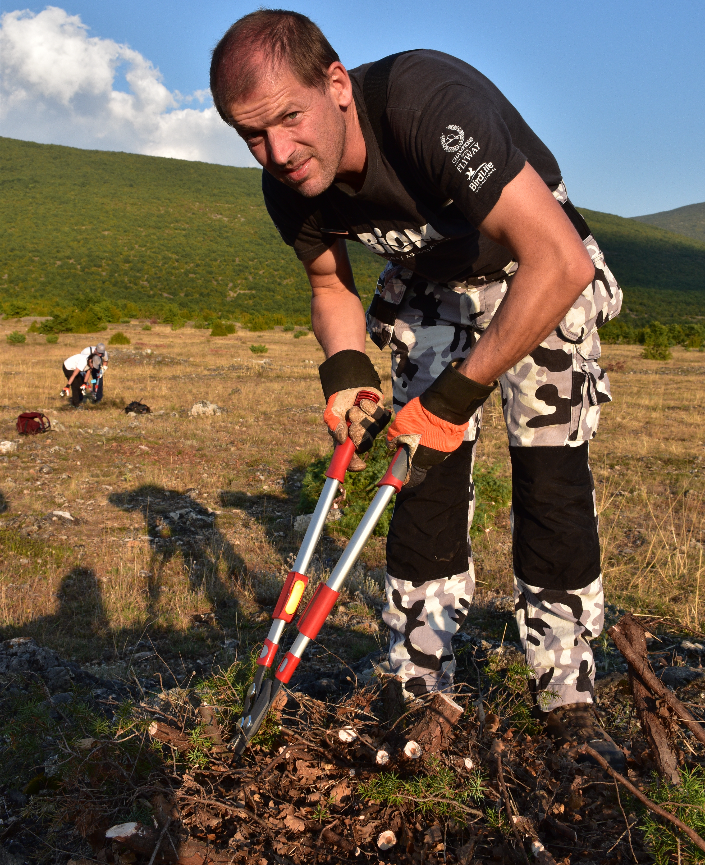
Ivan Budinski
Željka: A significant turning point in the association's development was the opening of the pre-accession EU funds and after the accession of the EU and the European structural and investment funds. Only then did we begin to be a civil society organization in the complete sense of the word because we got the opportunity to deal with the advocacy aspect of nature protection and not just conservation biology. With the association's development, education topics, volunteers, and members became more and more important. In recent years, we have been focusing more and more on fundraising from individual donors and the business sector. In the future, we wish to develop a network of our members and partners with whom we will jointly contribute to the common good.
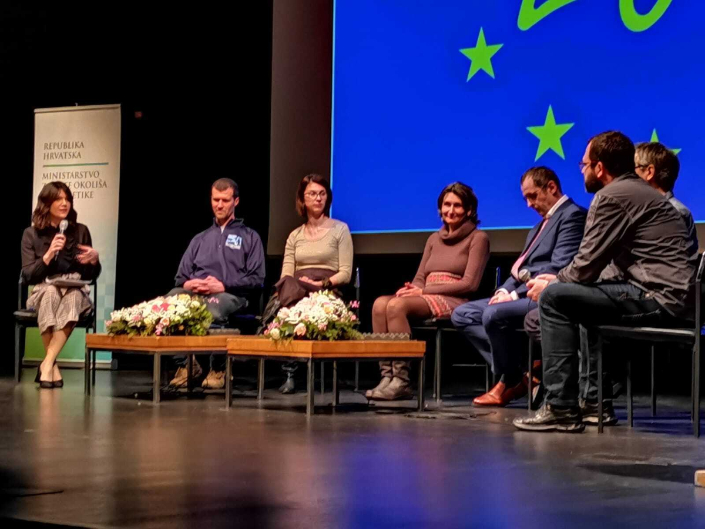
Željka Rajković
What was your motivation for working in the non-profit sector?
Ivan: Parallel to finishing college, I started doing bird research on my own, funded by public services, which showed me that it would be difficult for me to maintain my professional level through the public sector and that I needed the freedom of the non-profit sector. That is, I thought that by working in the non-profit sector, I could avoid various elements of corruption (including incompetence) in the public sector.
Tomislav: After graduating from university, I wanted to work in the profession, and working at Biom seemed extremely attractive. After the position opened, I applied and got the job. Working in the non-profit sector and the profession motivated me greatly because I wanted to participate in concrete improvements and improvement of the nature protection system in Croatia. That was a big motivation for me then, but it still is, now almost ten years later.
Iva: Right out of college, I became part of a non-profit story, and from the very beginning, I found myself in it so much that for a long time, I didn't even think much about how I would manage in "other worlds." But through the experience of cooperation with different sectors, I became more aware of their differences. Today I can say that what has motivated and fulfilled me for over six years is the opportunity to actively work on a diverse range of important topics that directly contribute to the protection of nature and the well-being of society. A key element of this is that I have the opportunity (and responsibility!) to actively participate in selecting and prioritizing these topics, shaping them, and quickly reacting to changes and new needs. In this way, my work and effort remain purposeful and relevant, which is hugely motivating. The variety of topics and areas we deal with also requires a wide range of skills from me and gives me numerous opportunities to learn, progress, and develop. In short, working in the non-profit sector allows me to successfully translate my passion for nature protection into the positive change I want to see and be a part of!
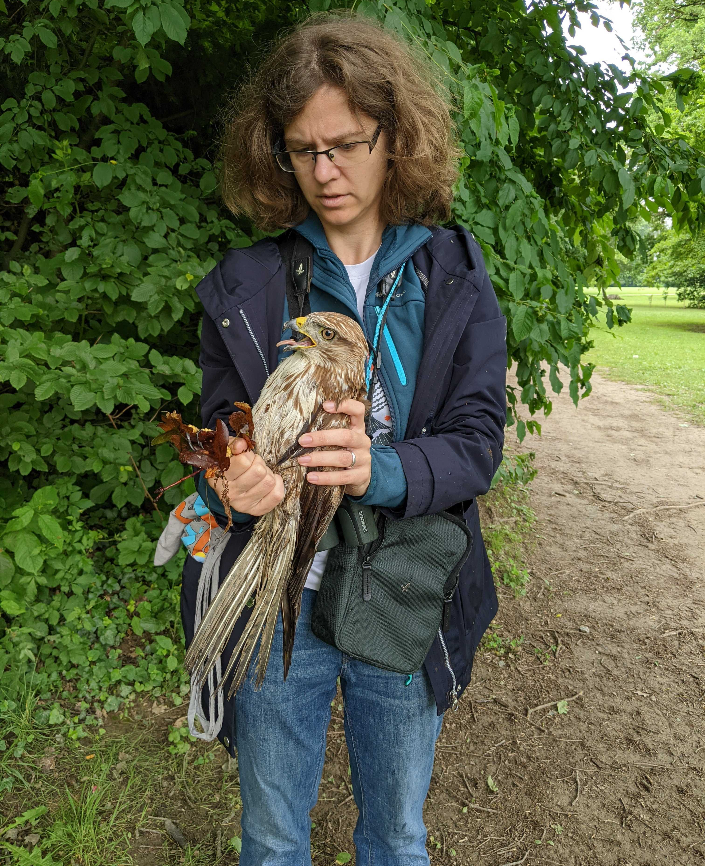
Iva Šoštarić
Dubravko: I see work in the non-profit sector as my own contribution to the development of the society I am a part of in the nature protection field. I have experience working in the public sector, so I can say that through my work in the association, I feel a much greater connection with the part of society that wants to get involved and contribute to preserving biodiversity in Croatia. In that connection, I find great motivation for my work. In addition, working in the non-profit sector allows me and my colleagues to define priority topics with different partners, which we also consider the most important in biodiversity conservation. This especially applies to those topics that are marginalized due to various political or other interests and are not recognized as the most important.
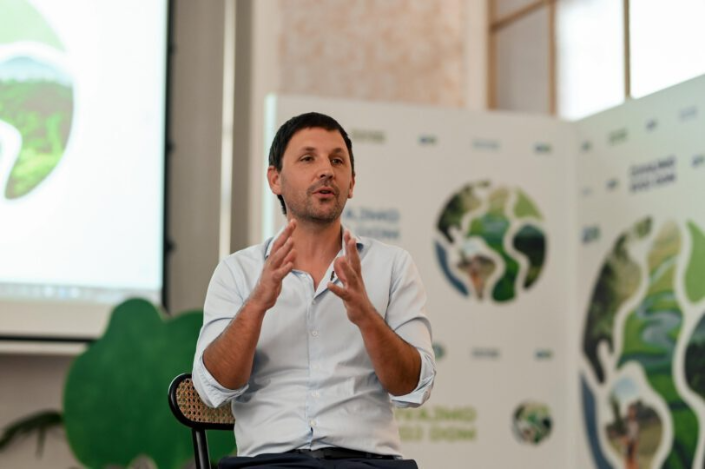
Dubravko Dender
Ivana: Through working in the non-profit sector, I want to contribute directly to society with my knowledge, skills, and work, and the idea of working in a profitable industry through which an individual gains profit does not fit in with my personal views. I feel comfortable in the non-profit sector because it is an environment where people want to raise the quality of the society in which we live and are ready to dedicate their time and work to it.
Željka: Working for the common good in the field of nature protection without the absurdities brought about by the public sector in Croatia has been my motivation for many years. I feel a sense of belonging to the civil society sector because my values overlap with the fundamental principles of civil society, our motivation in the sector is unquestionable, and no one is surprised when I love my job.
How is BIOM Association financed? With which types of donors do you cooperate, and in what way? How can someone support your work?
Tomislav: Biom started as a small association with no employees and a minimal number of projects and services. In the beginning, most of the income came from small services, but as the organization grew, things changed. The first employees came, and then more and more projects and services. Small projects were replaced by larger ones in which we were partners, and a turning point occurred, which put us in the position of leading large projects. In addition to projects, the association is still partly financed through the implementation of services for various nature parks and national parks, county public institutions, and ministries. Still, that segment only accounts for about 20% of the annual budget, with a further tendency to decrease.
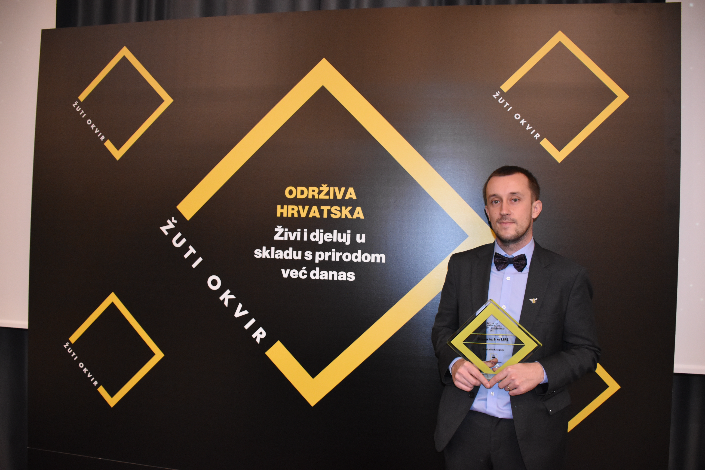
Tomislav Hudina
Željka: Biom is primarily financed through EU projects and projects of international foundations. If we were condemned to national funding, we would not exist. We apply for tenders in the EU, where the LIFE Program is crucial for us. We also apply for services (consulting jobs) that are advertised by ministries as part of EU projects. The relationship with the EU and ministries during the implementation of projects and services is quite different than the relationship with international foundations. We build a partnership with the foundations. They trust us and want us to succeed in what we do because that is their success. We are slowly gaining experience with the business sector, with which we share common values, and we believe in building partnership relations with such organizations.
Those who want to support the association's work can do so through donations, membership, and volunteering. Donations can be financial (one-time, multiple, or recurring) and can be in kind (through the donation of products, etc.), and of course, they are all used exclusively to achieve the association's goals. Members contribute through their independent work, involvement in our activities, participation in the organization's management, and membership fees. Volunteers contribute to the association's work by donating their valuable time to achieve common goals. Every year we monitor the contribution of our donors, members, and volunteers.
Advocacy is an integral part of the association's work. What do your advocacy activities look like?
Željka: Biom's advocacy activities include public advocacy for changes in EU and national policies concerning nature protection, related sectors, and civil society organizations. Thus, through membership in the BirdLife partnership, we advocate changes in EU policies directly in Brussels - either in the EU Parliament, the European Commission, or the European Council. At the national level, we regularly participate in public consultations on strategic documents and regulations, and we also encourage the state to participate in drafting documents and regulations. It is also important for us to influence the transparency of the work of the public sector and ensure access to environmental information, public participation in decision-making, and access to justice in environmental matters. When necessary, we file lawsuits against competent authorities in national courts, and I submit complaints to the European Commission when we believe that some rights from nature protection are threatened. An essential aspect of our work is the building of coalitions of civil society organizations and participation in relevant national and international networks. By acting through coalitions and networks, we ensure greater legitimacy and share the risk of being exposed to pressures and threats that unfortunately still exist in our country.
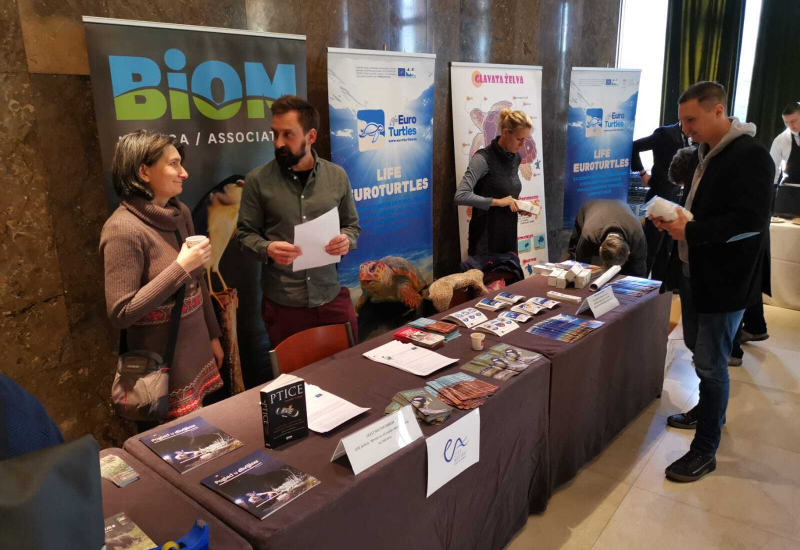
Volunteers are also an essential element of the association. How do they contribute to your mission, and how do you get volunteers?
Iva: More than 150 local volunteers participate in our work every year, participating in a whole range of activities - collecting valuable data on the distribution, abundance, and threats to different species of birds, holding research and educational camps, and actions to restore valuable and endangered habitats, reporting crimes against nature. In addition to working with local volunteers, we host long-term foreign volunteers as part of European Solidarity Forces projects. During their stay in the Biom, they contribute to research and direct nature protection measures and the creation of numerous educational activities and materials. Biom's volunteers annually devote an average of 12,000 hours of their time to contributing to the protection of nature and raising public awareness of its importance, which makes them an indispensable part of our results and success! Nowadays, when the biodiversity and climate change crisis is gaining momentum, many citizens have a great desire to actively contribute to protecting nature, and we are glad to say there is no shortage of interested volunteers. It is a much bigger challenge to harness and coordinate volunteer forces in a way that provides volunteers with the opportunity for purposeful contribution to our common goals. Therefore, every year we try to improve our volunteer programs to continue to contribute to the protection of nature to our mutual satisfaction! It is a much bigger challenge to harness and coordinate volunteer forces in a way that provides volunteers with the opportunity for purposeful contribution to our common goals. Therefore, every year we try to improve our volunteer programs to continue to contribute to the protection of nature to our mutual satisfaction
In what other ways do you involve the community in your work, and what does that bring you?
Ivana: Besides membership, volunteering, and donor element, we are also developing other ways of including in the work of our organization precisely because the preservation of nature often depends on the community that lives with that nature. Thus, through numerous projects, we establish advisory councils where all interested parties can contribute to thinking about the implementation of specific activities. Depending on the circumstances, we also include local community organizations in project partnerships, which is how we try to raise their capacities for further independent work.
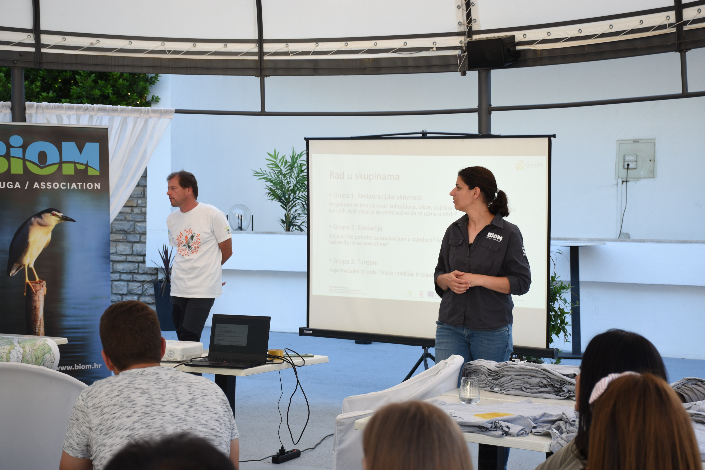
Ivana Selenac
Željka: The involvement of the community enables us to face real problems and jointly search for solutions that will take into account both the preservation of nature and the survival of man in rural areas. By involving the community in urban areas, we make citizens aware of the importance of urban biodiversity, but we also contribute to changes in local policies, such as city policies towards gray crows and sparrowhawks. By involving the community, we also give a voice to those who might not have it on their own, and in return, we get legitimacy and further support for our work.
How do you think the BIOM Association contributes to the development of philanthropy in Croatia?
Željka: We hope that with our existence and dedicated work on nature conservation and building a network of members, volunteers, donors, and supporters, we are an example that it makes sense to invest in civil society organizations, i.e., that investing in civil society organizations contributes to the common good and the betterment of both nature and society. We are still not active enough in the philanthropic community; we are still learning how to communicate what, how, and why we are doing, and we hope that in the future, we will be able to contribute more significantly and directly to the development of philanthropy in Croatia.
Ivana: Primarily as an example of a civil society organization operating in the field of nature conservation, where it emphasizes the important role of the community, but also of man as an individual who can and must contribute to betterment. In addition, by raising awareness about ecosystem services that we use from nature and that we also systematically destroy, we want to develop people's awareness that clean and preserved nature is the key to our well-being and healthy life.
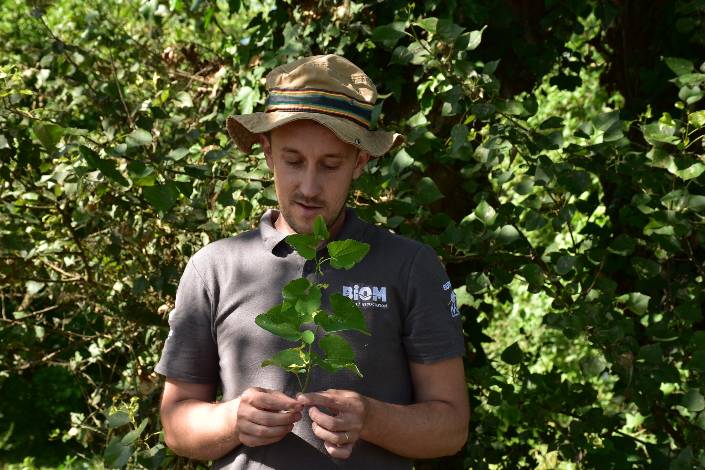
What are the biggest challenges you face at work?
Željka: The biggest challenge for us is ensuring the organization's financial stability due to project financing and the need for significant shares of our own co-financing of projects. Programmatically, we lack funds for our advocacy activities and work with members and volunteers. Due to the organization's rapid growth, the development of organizational capacities is a big challenge for us, that is, investing in the development of human resources so that we can work with quality and professionalism. Diversification of our income is also a challenge, which we have been trying to achieve in recent years through selling products and services and fundraising from individuals and the business sector.
What are the biggest successes that the association has achieved so far, and what do you still want to achieve?
Željka: Association Biom became a BirdLife partner in Croatia. BirdLife is the world's largest partnership for the protection of birds and nature. We are the first civil society organization in Croatia that manages projects from the EU LIFE Program, the EU's key program for nature conservation. We were the first in Croatia to start dealing with cross-sectoral topics such as illegal killing and poisoning of animals and electrocution. Few of us dare to sue the state when the rights related to the protection of nature are threatened, and thus we have on several occasions won judgments against the state regarding the assessment of the impact of wind farms on birds. In recent years, we have successfully implemented direct measures to preserve seabirds. We have significantly increased the number and nesting success of two species of seabirds - gregula and kaukala.
In the future, we want to implement direct conservation measures for the species and habitats that we consider to be a priority, which will again include the improvement of habitat conditions and habitat restoration. I want to contribute even more to successful cross-sector cooperation because we consider it crucial for nature conservation. We also want to build a network of members and partners with whom we will jointly contribute to the preservation of nature and the general good of our society.
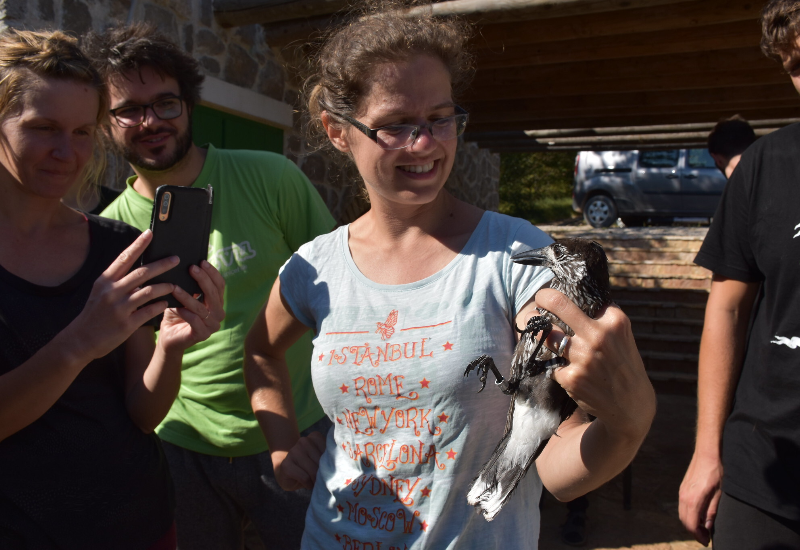

Leave a comment